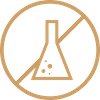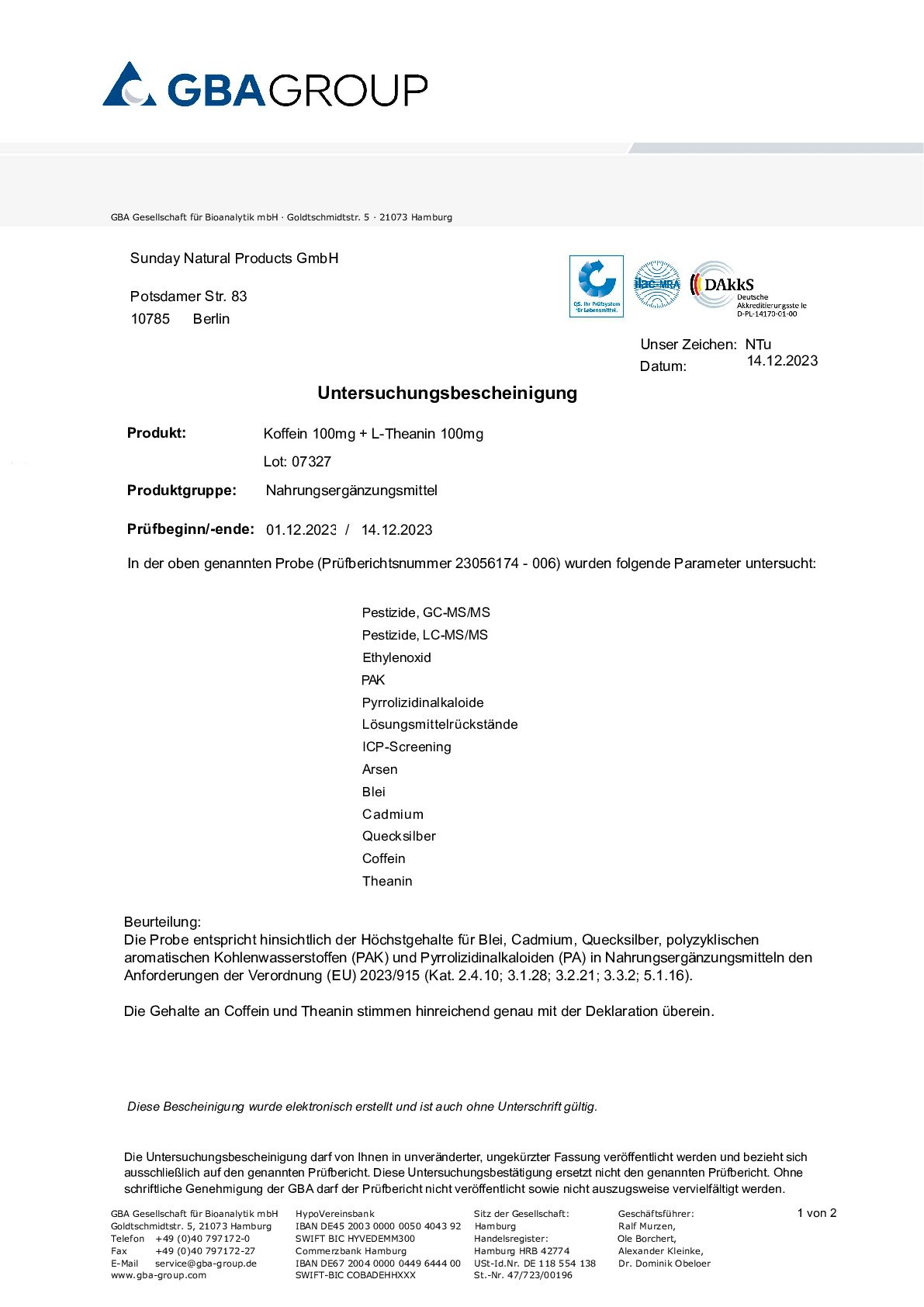Caffeine is an alkaloid from the xanthine group. It can be found in over 60 plants, including the coffee plant, the tea bush, guarana, mate, and cola nut. Thanks to its stimulating effect on the brain and its ability to enhance motivation and concentration, caffeine is the most popular stimulant in the world. L-theanine is an amino acid similar to glutamine that occurs naturally almost exclusively in the green tea plant (Camellia sinensis). L-theanine has antioxidative properties and can protect healthy cells against oxidative stress. L-theanine can also help to regulate various neurotransmitter systems and can have a relaxing effect. Combining caffeine with L-theanine can enhance caffeine's concentration-boosting and stimulating effects, while minimising negative side effects such as uneasiness and nervousness.
Caffeine is a xanthine alkaloid found in high amounts in the seeds of the coffee bush (coffee beans). It also occurs naturally in over 60 other plants, such as the tea plant, guaraná, the mate bush and the kola nut. The discoverer of caffeine is Friedlieb Runge, who first succeeded in isolating the pure compound from coffee beans in 1819. Caffeine is also frequently added to energy drinks.
L-Theanine
L-theanine is an amino acid similar to glutamine. In nature, L-theanine occurs almost exclusively in the green tea plant (Camellia sinensis). This special compound is partly responsible for the flavour of tea, reducing the bitterness and ensuring a full flavour. It cannot be produced endogenously (by the body) and is not converted into proteins.



























